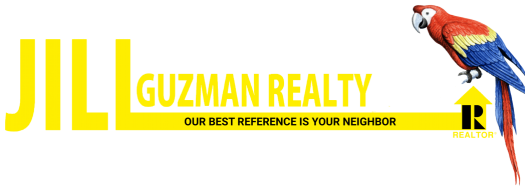Whether you’re in a buyer’s market or a seller’s market, once you find a house that feels like home, you’ll want to buy it as soon as possible. However, it’s not quite that simple. Many financial issues will determine whether you’ll be able to purchase the house, as well as the terms of your mortgage. Knowing this information in advance will help you make better decisions and will make your mortgage approval process go smoothly and quickly.
Financial Prerequisite #1: Have a Sufficient Down Payment
Your dream of home ownership can quickly get dashed if you can’t provide an adequate amount of money for your down payment.
“Lenders have tightened the requirements since the economic crisis in 2008,” says Karen R. Jenkins, a certified mortgage banker who’s the president and CEO of KRJ Consulting in Columbia, South Carolina. “As a result, prospective borrowers seeking to purchase a home must have some ‘skin in the game’ to qualify for a home,” Jenkins says most loan programs require a minimum 3.5% down payment.
You may have known people who purchased homes in the past without a down payment – or you may have even been one of those people. That’s a much less likely scenario today, as banks are trying to limit the risk of borrowers defaulting. “A borrower with skin in the game is less likely to default when the going gets tough,” says Stacey Alcorn, owner and Chief Happiness Officer at Boston-based LAER Realty Partners. For example, when real estate values go down, a borrower who has put their life savings into that property is more likely to hang on and ride out the storm, waiting for property values to rise again, Alcorn says. On the other hand, “a borrower who has put zero money down is likely to just walk away from the property and let the bank take it through foreclosure.”
Financial Prerequisite #2: Have a Minimum Acceptable Credit Score
Your FICO score will reflect if you are maxing out your credit cards and late paying your bills, which can be another financial stumbling block for potential homeowners needing a mortgage. “FICO scores tell the bank your ability to pay your bills monthly and how much overall debt you have. If you are maxed out on all your credit cards, your FICO score will be low, and this will hurt your chances of getting financing because banks don’t want to lend to someone who is living off credit cards,” Alcorn says.
What’s considered an acceptable FICO score? Amy Tierce, Regional Vice President of Wintrust Mortgage in Needham, Mass., notes that although the FHA offers financing to borrowers with a credit score as low as 500, most lenders have added their own requirements. So it will be a challenge to find a lender who’ll work with a borrower with a credit score below 640. (For more, read: What Is A Good Credit Score?)
However, maxed-out credit cards aren’t your only concern. “If you are consistently 30, 60, or 90 days late on your other bills, your credit scores will again be low, and banks don’t want to lend money to someone they will have to constantly beg for their money,” Alcorn says, adding that “collections, bankruptcy, or foreclosure on your credit tells the bank that you have no problem reneging on your debt commitments and, to put it simply, they don’t want to be next.”
Financial Prerequisite #3: Have a Debt-to-Income Ratio Less Than or Equal to 43%
Homeowners who overextend themselves may end up eating Ramen noodles every day in a house that they may eventually lose. It’s important to be realistic about what you can afford.
“Banks use a debt-to-income ratio to determine if a borrower can afford to purchase a home,” Alcorn says. “For example, let’s say a borrower earns $5,000 per month. The bank doesn’t want your total debt, including new mortgage payment, plus your car payments, credit card payments, and other monthly obligations, to exceed a certain percentage of that income.” In January 2014, the Consumer Financial Protection Bureau introduced rules stating that the debt-to-income ratio cannot exceed 43%. (For more, see: What’s Considered to Be a Good DTI Ratio?)
However, Alcorn warns that just because the bank feels that you can afford a particular mortgage payment doesn’t mean you actually can. “For example, the bank doesn’t know that you have a large family, or child care costs, or aging parents that you’re caring for. It’s important to have a candid conversation about your monthly payments with your mortgage team so that you don’t get in over your head.”
Jenkins agrees, adding that “there are additional expenses involved with owning a home that you may not incur while renting. Be sure to calculate all monthly expenses and debts and let your budget make the final decision regarding what you can comfortably afford to pay.”
Financial Prerequisite #4: Have the Ability to Pay Closing Costs
There are numerous fees associated with a home mortgage, and you could be in for a rude financial awakening if you don’t know in advance what to expect.
Although closing costs vary from lender to lender and state to state, “borrowers pay for the appraisal, credit report, attorney/closing agent fees, recording fees and processing/underwriting fees,” Alcorn says, adding that closing costs are usually 1% of the loan amount.
However, Jenkins says that fees could be as much as 3%. “Lenders are now required to provide you with a comprehensive ’good faith estimate’ of the fees you will incur on a specific loan. The rules are also more stringent on lender’s estimates, and there is very little room for the fees quoted to change at the closing table.” She advises homebuyers to review the good faith estimate and ask questions if you’re unsure what a specific fee represents.
Financial Prerequisite #5: Have Required Financial Documentation
Insufficient documentation can delay or even stop the loan approval process, so you need to find out what you have to bring to the table.
“Your lender should have a full and complete checklist of required documentation to support your loan application depending on your employment and income situation,” Tierce says. “If you are starting with a pre-approval, be sure that the lender asks for all documentation for the process since a pre-approval without thorough documentation review is useless. Something can be missed that could result in your loan being declined later if the pre-approval process is not extremely well documented.”
What is pre-approval? As per Jenkins, it’s “preliminary approval based on what the borrower ‘stated’ on the application (income, debt, assets, employment, etc.). The actual approval process validates the income, assets, and debt using various methods such as pay stubs, tax returns, bank statements, W2s and employment verifications.”
Tierce adds that “in competitive markets, sellers and realtors won’t even consider an offer without knowing that the buyer is pre-approved.” Additional documents could be requested at a later date or throughout the process. “The underwriting process is exhaustive, and some documents may bring up questions or concerns that require additional documentation. Just take a deep breath and give the lender everything they ask for, as quickly as possible, to get your approval completed.”
The Bottom Line
Before you can think about buying the home of your dreams, you need to be sure that your finances are in order and that you’ve prepared wisely and thoroughly before the mortgage-approval process even begins.
Source: https://www.investopedia.com/articles/personal-finance/091415/5-financial-prerequisites-buying-house.asp





